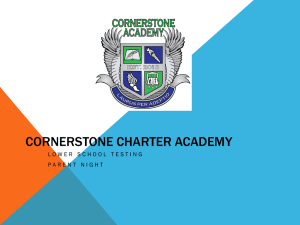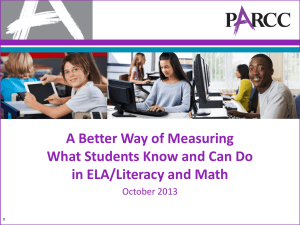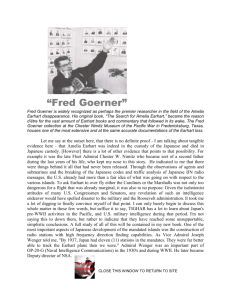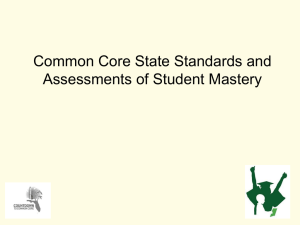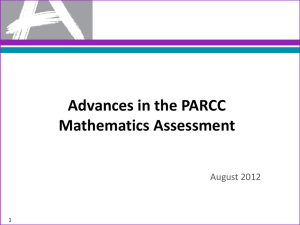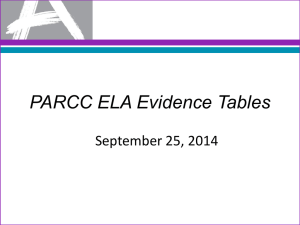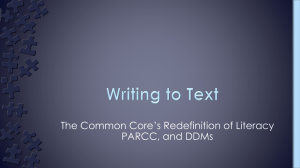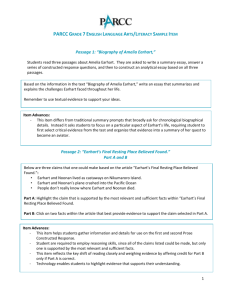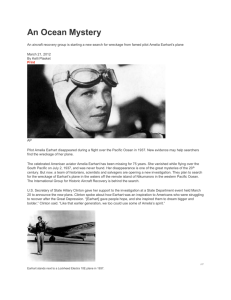3-11 Writing Resources
advertisement
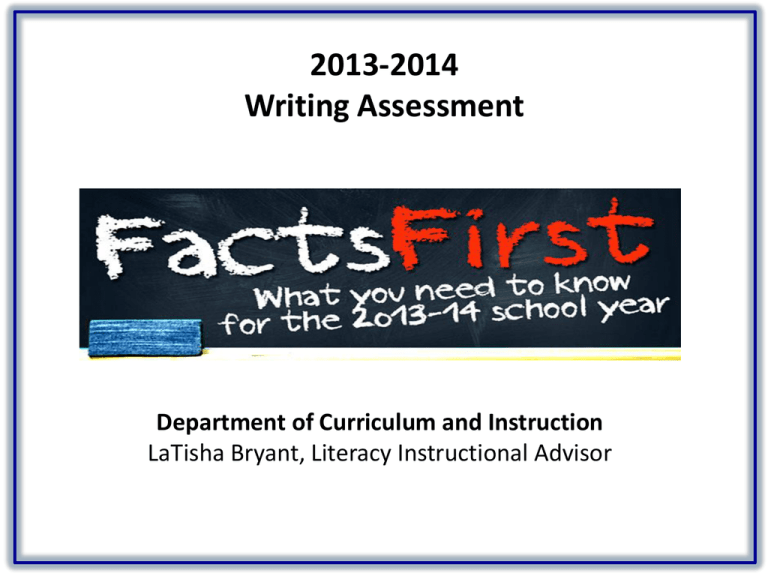
2013-2014 Writing Assessment Department of Curriculum and Instruction LaTisha Bryant, Literacy Instructional Advisor Focus Standards: ELA/Literacy Instructional Shifts 1.Complexity: Regular practice with complex text and its academic language. 2.Evidence: Reading and writing grounded in evidence from text, literary and informational. 1.Knowledge: Building knowledge through content rich nonfiction. The 2013 Writing Assessment Results Data Appendix (state) Table 1: Scores by Trait (1-4 scale) Focus/Organization Support/Elaboration Language/Style Conventions Average % scoring a 3 Average or 4 % scoring a 3 Average % scoring or 4 a 3 or 4 Average % scoring a 3 or 4 5 grade 2.44 41.3% 2.46 42.0% 2.63 56.6% 2.59 8th grade 2.46 45.5% 2.09 23.3% 2.57 50.3% 2.69 57.4% 11th grade 2.74 67.9% 2.02 27.6% 2.88 73.5% 2.96 75.5% 50.9% 2.20 31.2% 2.69 59.7% 2.74 60.7% th Overall 2.54 51.0% THE FACTS 2013-2014 Writing Assessment Grades 3-11 will be tested on the Writing Assessment. There will be a four-week testing window from Feb. 3- Feb. 28, 2014. Official administration times for each grade level will be released this fall after pilot data has been analyzed. The 2013-14 TCAP Writing Assessment will test students on the following types of writing: opinion/argument and informative/explanatory. All writing assessments will be administered via computer. All February writing assessment administrations will be centrally scored by Measurement, Inc. 2013-2014 Writing Assessment Rubrics • Rubrics are differentiated by writing mode, grade band, and subject area. • Informational/explanatory and opinion/argument rubrics are available for: • Grades 6-8 ELA • Grades 6-8 Literacy (History/Social Studies, Science, and Technical Subjects) The February 2014 Tennessee Comprehensive Assessment Program Writing Assessment will emphasize the same shifts while attempting to approach more closely the format of the PARCC assessment, which will assess both reading and writing starting in the 2014-15 school year. The administration time for the writing assessment will be expanded to more closely mimic PARCC’s testing guidelines and allow students to write one analytic summary for one text and one analysis across two texts. The 2013-14 official Writing Assessment will continue to emphasize the following skills at the core of the CCSS for ELA instructional shifts: Reading and comprehending grade-level complex text (as defined by the Common Core text complexity grade bands) Writing in response to sources, including incorporating textual evidence into an analysis or argument The Writing Assessment is modeled after the PARCC Research Simulation Task (RST) and will be structured as follows, with key changes from this current year bolded: Students will read two complex informational texts. Texts will cover social studies or science topics in order to demonstrate the range of informational reading possible in a Common Core curriculum. Students will write two essays: One prose constructed response (PCR) essay about the first text. The essay will be an analytical summary. One PCR analytical essay about both texts. The essay will be informational/explanatory or argumentative. The Research Simulation Task mimics a research project; its purpose is to assess a student’s ability to read multiple texts on the same topic and synthesize the information into a coherent idea or argument. A SAMPLE WRITING TASK Sample Grade 7 Prose Constructed Response from Research Simulation Task (Summary) Based on the information in the text “Biography of Amelia Earhart,” write an essay that summarizes and explains the challenges Earhart faced throughout her life. Remember to use textual evidence to support your ideas. So let’s try it!!!!!! Sample Grade 7 Prose Constructed Response (PCR) from Research Simulation Task (Analytical Essay) You have read three texts describing Amelia Earhart. All three include the claim that Earhart was a brave, courageous person. The three texts are: •“Biography of Amelia Earhart” •“Earhart's Final Resting Place Believed Found” •“Amelia Earhart’s Life and Disappearance” Consider the argument each author uses to demonstrate Earhart’s bravery. Write an essay that analyzes the strength of the arguments about Earhart’s bravery in at least two of the texts. Remember to use textual evidence to support your ideas. So let’s try it!!!!!! Remember, a text can be a …… • • • • • • map chart chapter timeline picture work of art And how am I suppose to do this? Instructional Shift in ELA/Literacy Reading, writing and speaking grounded in evidence from text, both literary and informational. And how am I suppose to do this? • Use the curriculum maps. • Use the writing prompts and performance tasks in the literature textbook that follow the selections in the units. • Teach students how to analyze and critique text by Annotating text (underlining main points etc.) Asking text – dependent questions. • Teach students how to cite evidence from the text. • Create your own writing prompts using the samples • Provide opportunities for students to read to self and read to someone • Teach students how to summarize • Spend less time on process writing • Teach students how to compare and contrast And how am I suppose to do this? So when do I teach grammar? I have a 14 year old sixth grader who still can’t distinguish between a noun and a verb. Integrating Grammar into Reading and Writing through: • bellwork (5-10 min.) • mini –lessons (10-15 min.) • the text by asking text-dependent questions about the grammar skill(s) being taught • writing (example – On a writing assignment, you can ask students to use at least 5 compound complex sentences) • Remember, teaching is about learning in context. • It is not important that students can write compound complex sentences in isolation. We’re interested in whether or not students can write compound complex sentences or use colons and semi-colons within the context of actually writing an essay or research paper. Writing Instruction is based on …. 1. Reading complex text 2. Citing evidence from the text + Text = citing evidence Effective Reading and Writing Instruction and PARCC Customer Service • LaTisha Bryant BRYANTLL1@SCSK12.org Middle School Instructional Advisor 416-2932 • Jocquell Rodgers RODGERSJE@SCSK12.org Middle School Instructional Advisor


